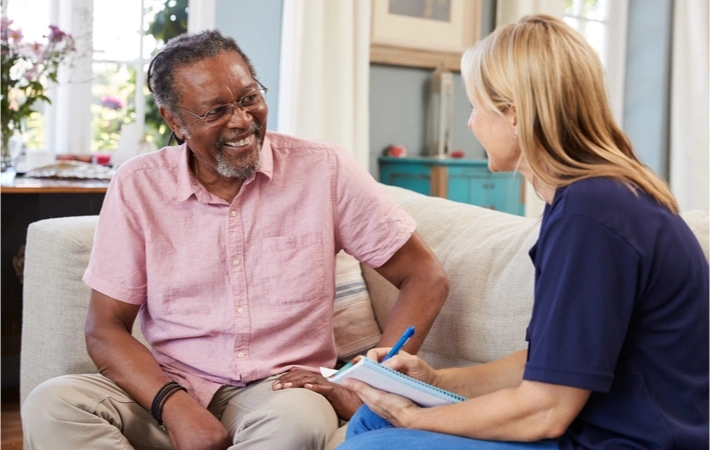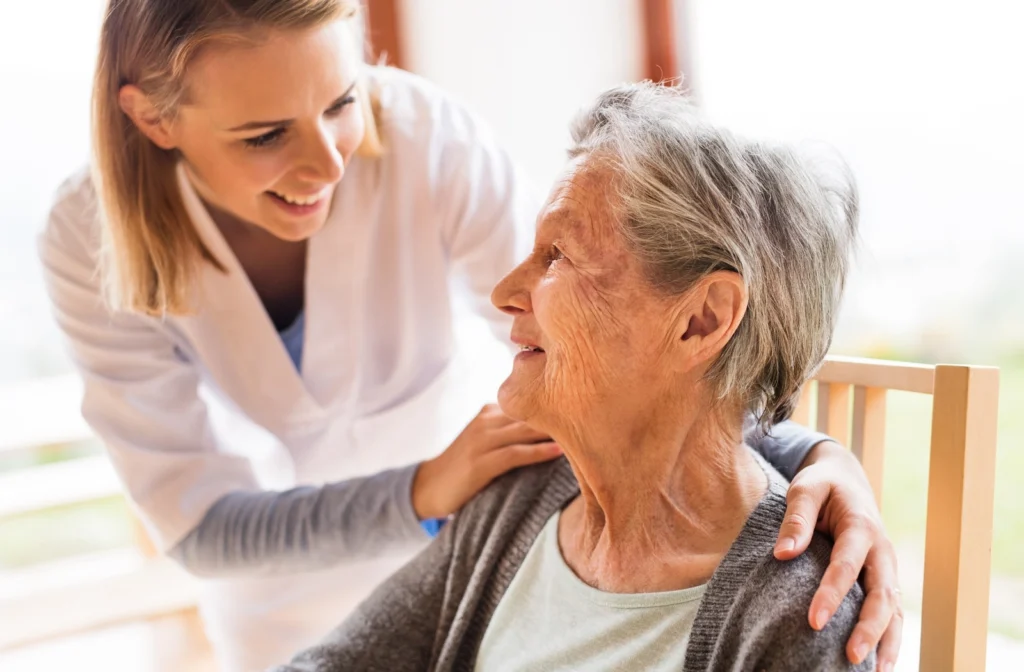What Makes a Good Senior Carer?
Must-Have Qualities for Caregivers
There’s a difference between a caregiver and a good caregiver. Just like there’s a difference between a teacher and your favorite teacher. Of course, receiving education or training is a must, but being a good carer requires more. When a caregiver provides excellent care, it makes a difference every day in the lives of their patients.
The right qualifications for a caregiver can depend on the level of care. Senior communities with independent living, assisted living, and memory care have distinct services and staff duties. For example, a carer may need training or skills to help with medication management or memory support. But there are also universal skills every caregiver needs.
Communication Skills
Communication skills are expected of every professional, but communication can be even more crucial for carers. Communication isn’t a one-way street. Caregivers need to demonstrate the ability to communicate with their patients, patients’ family members, and colleagues.
Effective communication can be especially critical for seniors with medical conditions. Good communication skills in a healthcare setting can improve patient safety and satisfaction.
Memory problems and medical conditions can introduce communication challenges. For example, seniors with Alzheimer’s disease may have difficulty remembering words or paying attention during long conversations. Therefore, a carer needs to have the training to be direct, specific, and positive.
Empathy
Empathy is a skill that can’t be taught. Often confused with sympathy, genuine empathy is a distinct skill. Sympathy means interpreting a situation based on your individual perspective. Empathy means putting yourself in someone else’s shoes and understanding why they feel or act the way they do.
When a carer feels empathy, they care deeply and quickly pick up on emotional states. Empathetic people are good listeners and driven to help other people. Empathy can help seniors feel supported and safe.
Patience
Patience is more than being able to wait. It’s also the ability to understand the patient’s needs and set realistic expectations. Rome wasn’t built in a day, and sometimes caring for seniors means having the flexibility to change plans and build a little more of Rome tomorrow.
Carers must develop tools for coping, set realistic goals, and know when to pick their battles, or they may suffer from caregiver burnout.
An add-on to patience is flexibility. Some challenges can test your patience, and being flexible enough to find a solution is a necessary skill.

Observation Skills
A senior carer can often have the most insight into their charge because they spend the most time together completing day-to-day activities. Therefore, a caregiver should be observant about their patients’ health and mood. Caring for someone makes the carer the first line of defense for the patient’s wellbeing, and they must advocate for the patient when they observe changes.
Reliability
A good carer is someone seniors can count on and trust. It’s also crucial that a caregiver’s employer or colleagues consider them reliable. Usually, those go hand in hand. But it can sometimes be a balance of making time for personalized interactions and completing vital tasks, even when facing resistance.
Time management is also an aspect of reliability. A caregiver keeps time for themselves and the people they care for. A carer can be responsible for most of their patient’s daily activities.
For seniors with memory problems or medical conditions, their carer may be responsible for scheduling or organizing their meals, social events, medical appointments, hygiene care, etc. Having a good memory can be a valuable skill, but carers may also rely on lists or other tools.
Stamina
Depending on the position, a carer may need to do a lot of physical work, including assisting with personal care, bathing, or toileting. Therefore, a carer needs to be physically healthy and capable.
Stamina is also more than how much you can lift. A good carer needs the energy to keep up with the many daily tasks and interactions involved in senior care.
Positivity
Emotions are contagious—both the good and the bad. When someone you care about is in a bad mood or upset, you might feel deflated or share their feelings. But you may also laugh when they laugh or feel happy when they’re happy.
Researchers have found that when sports teams promoted positivity, the upbeat attitude made individual players feel better and play better. Carers may not be the coach of their patient’s sports teams, but they do play a significant role in everyday interactions.
A good mood can support physical health, but it can also benefit your mind. Depression can impair cognitive abilities and may increase the risk of dementia in seniors. On the other hand, a good mood is good for heart and brain health.
A good carer can be an example of positivity, which can beneficially affect the mood of senior residents.
Find Good Carers at Meadowcrest
Caregiving is more than a job; it’s a calling. A good carer provides their patient’s stability and empathy. At Meadowcrest, all our residents receive personalized support from qualified, compassionate carers. When seniors join our community, they’re part of the family, and our friendly staff is here to help them feel at home.
Book a visit with Meadowcrest at Middletown, or contact us to learn more about our quality of care.





